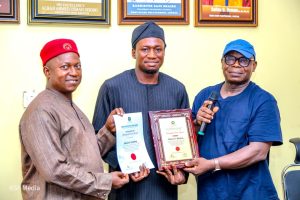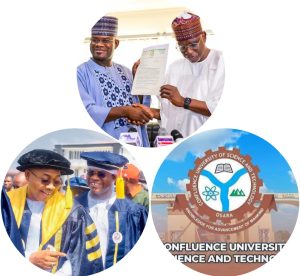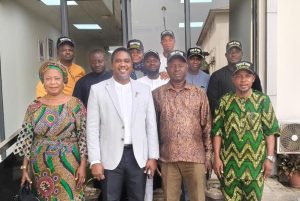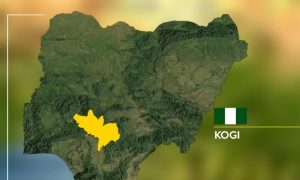Artificial Intelligence and the Fate of Objective Truth in Nigeria Politics

…will the truth survive artificial intelligence in Nigeria’s 2027 elections campaigns?
By Hamza Yakubu
As Nigeria approaches the 2027 general elections, the role of artificial intelligence (AI) in politics is becoming increasingly prominent. While AI has the potential to democratize access to knowledge and bridge language barriers, it also poses significant challenges to democratic processes. The integration of AI into digital political communication platforms has transformed the ecosystem of information dissemination, with AI-enabled tools playing a central role in producing and amplifying disinformation.
This phenomenon threatens to distort political information environments, erode public trust in institutions, and foster polarization, ultimately degrading democratic decision-making. The speed at which AI is advancing is matched only by the feverish excitement around its promise. However, there is also reason for serious concern. The ideological bias and censorship baked into the most widely used AI systems are well-documented, and chatbots are getting better at mimicking human communication while frequently spreading false information with confidence.
The implications are far-reaching. AI-generated fake images and sounds are becoming increasingly indistinguishable from real photographs and recordings. This technology can be harnessed to generate and spread lies, sink us deeper into echo chambers, and manipulate our public discourse. As we stand at the edge of a revolution that will completely transform our world, the question lingers: Will the truth survive artificial intelligence?
In an era where deepfakes, disinformation campaigns, and conspiracy theories are getting more sophisticated, the real challenge might be holding onto the belief that an objective truth still exists. For political stakeholders, there is a need to begin getting set for what’s ahead. The 2027 elections will be a test of our ability to navigate this complex environment. AI may cause serious destruction and chaos to our political environment and democratic processes if not properly managed.
Let’s be alert and strategize, recognizing both the promise and the pitfalls of AI in politics. The stakes are high, and the future of our democratic processes depends on our ability to harness the benefits of AI while mitigating its risks. As we move forward, it’s essential to prioritize fact-checking, transparency, and accountability in our use of AI. Only then can we ensure that the truth survives the AI revolution and our democracy emerges stronger and more resilient.
Ultimately, the biggest challenge lies in the fact that many citizens lack the knowledge to fact-check information and distinguish between real and AI-generated content. This demographic, however, constitutes the majority needed to win elections. When they are swayed against a candidate by misinformation, it could be disastrous. Politicians must begin to think along these lines, formulating strategies to educate and empower the larger number of citizens who may not be equipped to navigate the complexities of AI-generated content.
As a digital political communication strategist, I am putting this out as a wake-up call as we are presently rolling up our sleeves to begin the 2027 elections campaign.








